
Culture
21:26, 13-Dec-2018
Real Time China: Tourism prospers in the birthplace of Mao
Updated
20:59, 16-Dec-2018
Yang Jinghao, Luo Caiwen
02:53
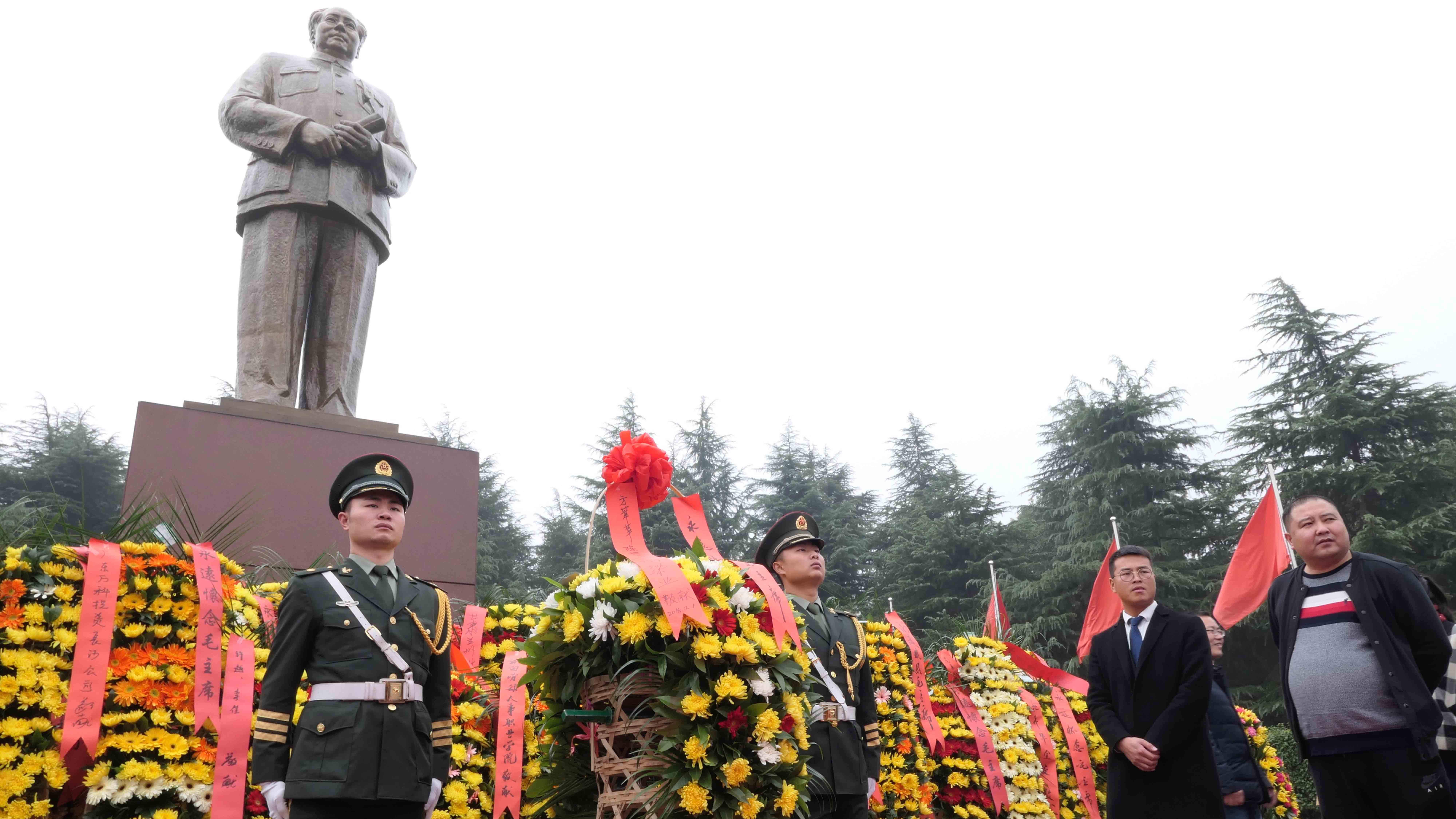
Shaoshan, the birthplace of the late Chinese leader Mao Zedong in central China's Hunan Province, remains one of China's most visited tourist destinations more than 40 years after he passed away, an epitome of the booming "red tourism" across the country.
Every morning, visitors from all walks of life line up to present flower baskets to the massive bronze statue of Mao, which stands in the large square named after him, and then bow deeply – a simple yet devout way to pay their tributes.
"This trip greatly inspired me and gave me strength. I think we young people should still learn the great ideas and spirits of Chairman Mao today," Li Zhiqiang, a man in his 20s from north China's Shanxi Province, told CGTN.
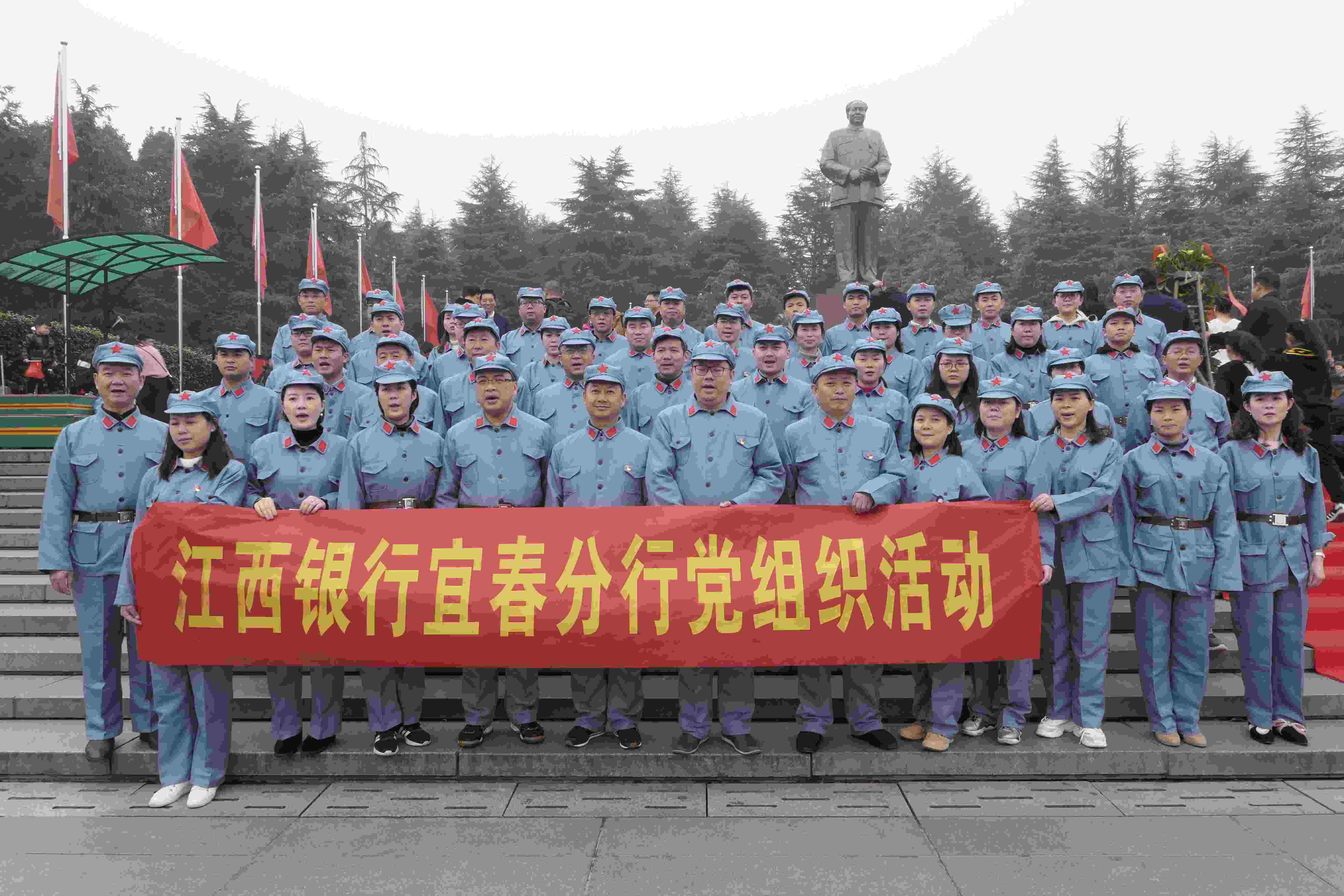
Uniformed visitors from Jiangxi Province pay tribute to the late Chinese leader Mao Zedong in front of his statue. /CGTN Photo
Uniformed visitors from Jiangxi Province pay tribute to the late Chinese leader Mao Zedong in front of his statue. /CGTN Photo
For different kinds of organizations – government agencies, enterprises or schools – this is a great place for patriotism education.
Born in 1893, Mao spent 17 years in Shaoshan before his further education. Today, his former residence is a must-see for many.
"I feel excited! Chairman Mao was so great and I have been longing to visit his residence in his hometown. Today, my daughter finally helped me realize my long-cherished dream," said Wang Jialian, a middle-aged woman from neighboring Changsha, capital of Hunan.
Foreigners also visit.
"We know much about Chairman Mao. We all think that he contributed a lot to China and respect him very much. I'm glad that I finally got the opportunity to visit the place he used to live," said Simplice Florentin Boby, an engineer from the Central African Republic.
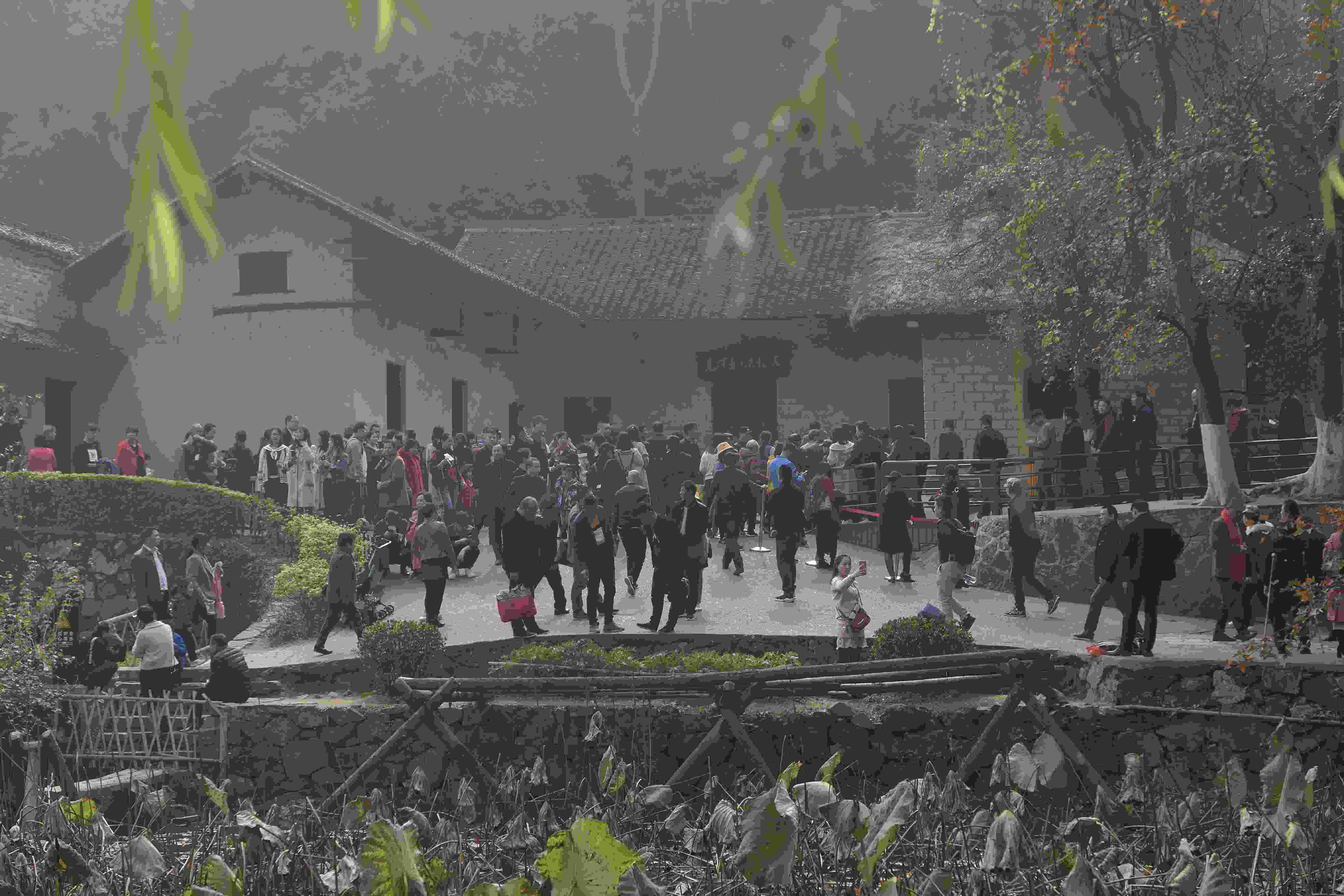
Tourists influx to the former residence of Mao Zedong in Shaoshan. /CGTN Photo
Tourists influx to the former residence of Mao Zedong in Shaoshan. /CGTN Photo
According to official data, Shaoshan received more than 20 million visits in 2017, some nine-percent increase over the previous year, which generated about 6 billion yuan in revenue (about 873 million U.S. dollars).
In fact, the influence of Mao can be more easily felt in his hometown. Statues and portraits of various types can be seen in most of the restaurants, hotels and other facilities.
For local young couples, they would also pay respects to the leader by sending flower baskets to the big statue as tourists do, sometimes even as an important part of their weddings.
"Today we're still benefiting from the legacy left by Chairman Mao, so we Shaoshan people hold greater affection to him," said Tian Haiming, a local resident who has collected tens of thousands of related objects, including statues, badges, and portraits.
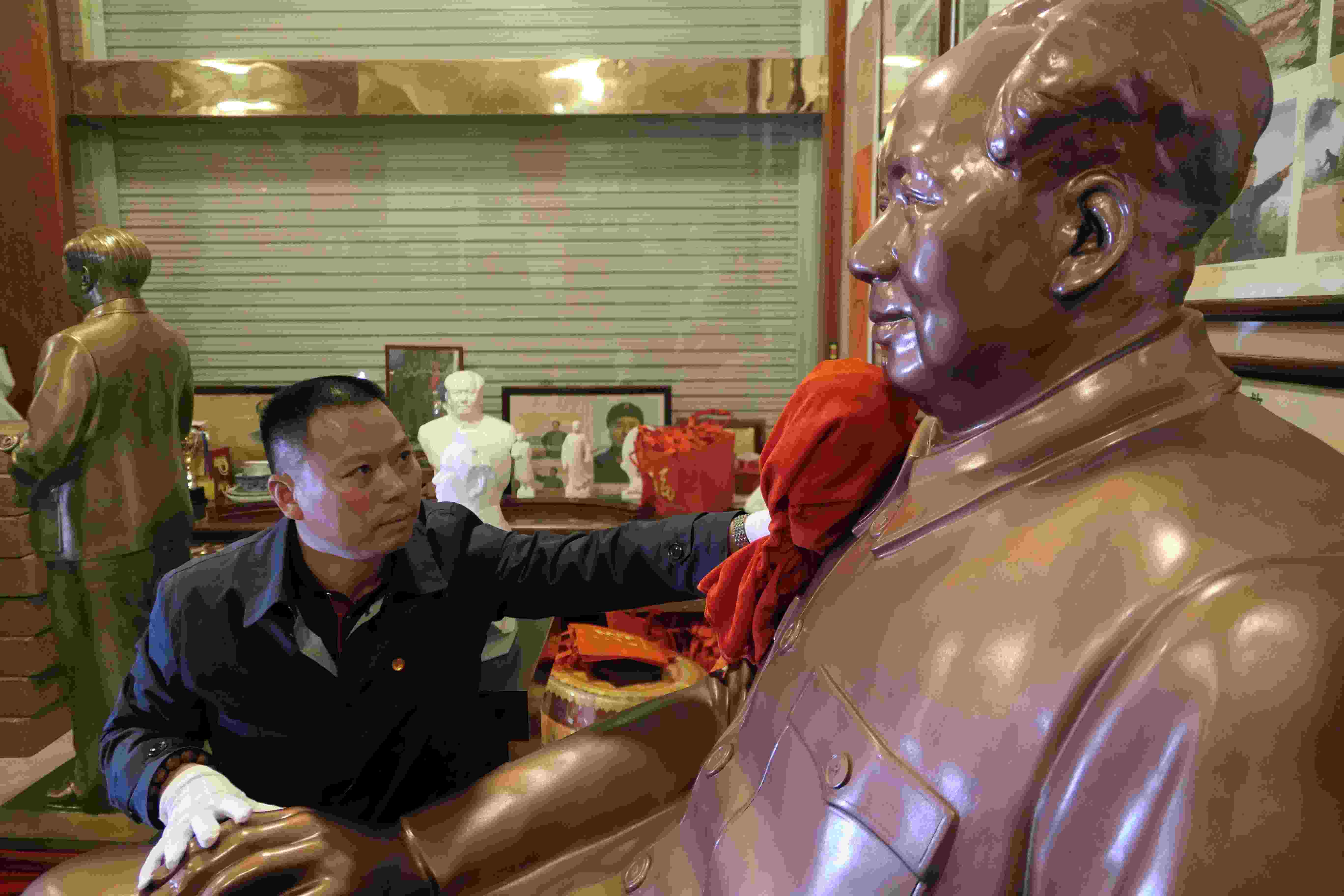
Local resident Tian Haiming cleans a big statue of Mao Zedong. Over the past 25 years, he has collected tens of thousands of objects related with Mao. /CGTN Photo
Local resident Tian Haiming cleans a big statue of Mao Zedong. Over the past 25 years, he has collected tens of thousands of objects related with Mao. /CGTN Photo
Undoubtedly, the booming tourism industry has created more opportunities for locals to be better off through operating restaurants and hotels, or selling souvenirs.
Like some of his fellow villagers, 47-year-old Tian has also benefited from producing statues of Mao for customers around the country.
Experts also pointed out that while remembering the great leader, people should also learn more about his thoughts, which are still inspiring today.
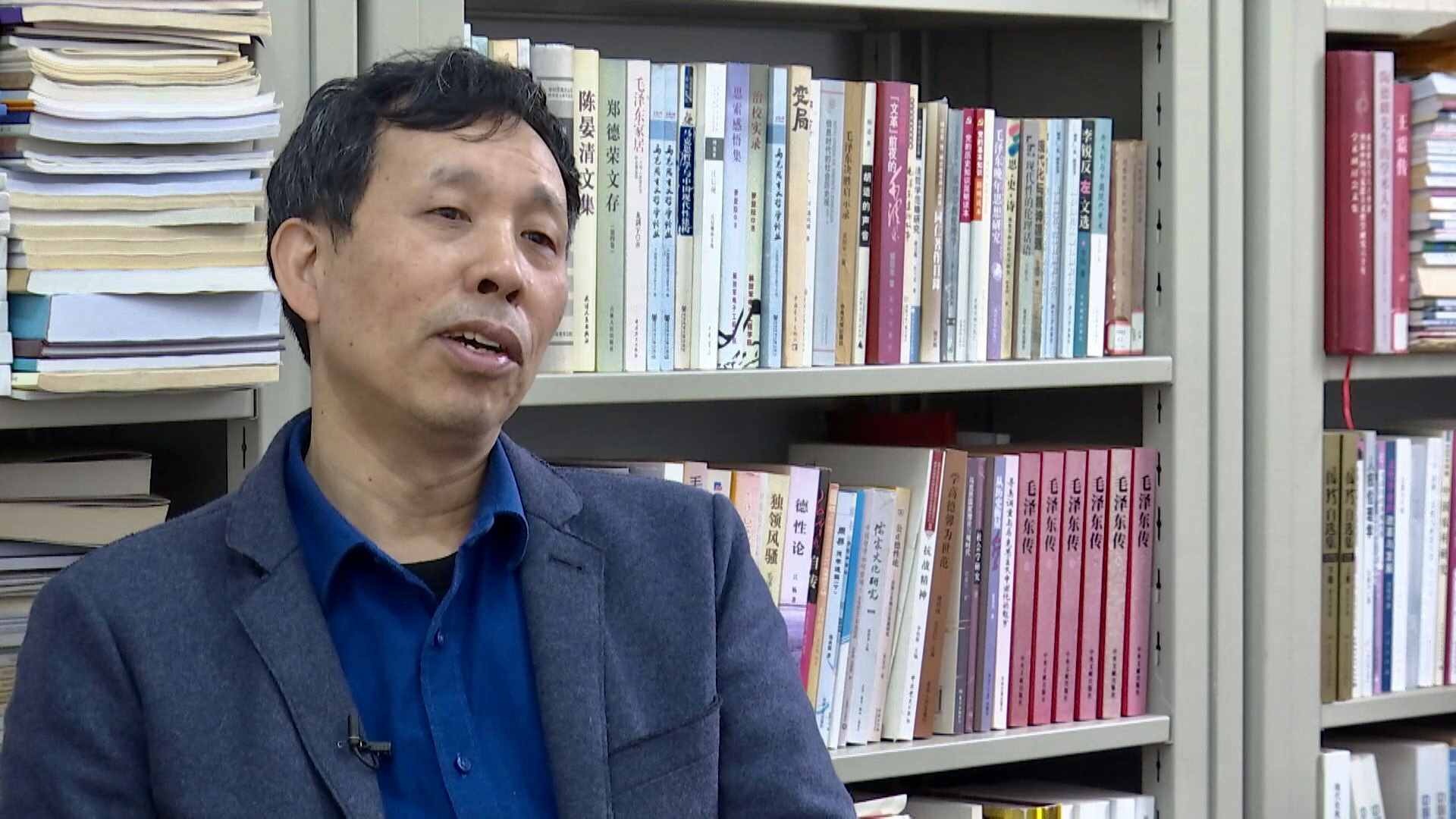
Li Youxin, dean of the School of Marxism of Xiangtan University, shares his opinions on the thoughts of Mao Zedong with CGTN. / CGTN Photo
Li Youxin, dean of the School of Marxism of Xiangtan University, shares his opinions on the thoughts of Mao Zedong with CGTN. / CGTN Photo
"The Mao Zedong thoughts are still of great significance and value in the new era. For example, the spirits of 'seeking truth from facts,' pursuing the 'mass line' and 'fighting for independence' are still enlightening for our future development," said Li Youxin, dean of the School of Marxism of Xiangtan University, which was established under the advocacy of Mao.
Now, Tian Haiming is determined to promote the "red culture" represented by Mao's thoughts. To this end, he plans to establish a private museum to share his collections.
"This is a kind of responsibility," he said.

SITEMAP
Copyright © 2018 CGTN. Beijing ICP prepared NO.16065310-3
Copyright © 2018 CGTN. Beijing ICP prepared NO.16065310-3